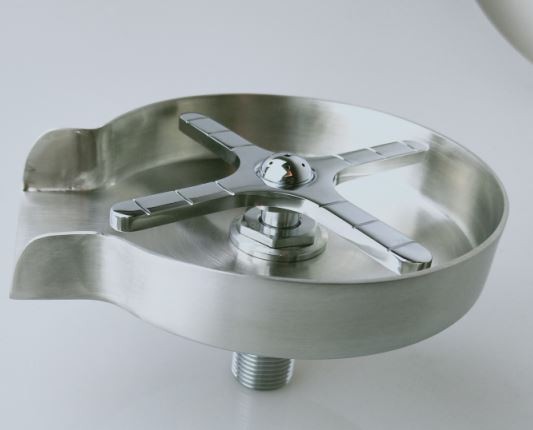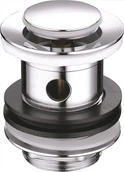Are Rinser Glasses environmentally friendly?
Hey there! I'm a supplier of Rinser Glasses, and I often get asked this question: Are Rinser Glasses environmentally friendly? Well, let's dive right in and explore this topic.
First off, let's understand what Rinser Glasses are. Rinser Glasses, also known as glass rinsers or cup rinsers, are devices designed to quickly and efficiently clean glasses and cups. They're commonly used in bars, restaurants, cafes, and even in some households. There are different types out there, like the Metal Glass Rinser, Cup Washer, and Cup Rinser For Sink.
Now, let's talk about the environmental aspect. One of the biggest factors when it comes to environmental friendliness is water usage. Traditional methods of washing glasses, like using a sink and a sponge, can be quite wasteful. You might leave the tap running while you scrub, and a lot of water goes down the drain without really being used effectively.


Rinser Glasses, on the other hand, are designed to be more water - efficient. They use a specific spray pattern and a controlled amount of water to clean the glasses. Most modern Rinser Glasses are engineered to use just the right amount of water to remove debris and residue from the glass surfaces. This means that they can save a significant amount of water over time, especially in high - volume settings like commercial kitchens and bars.
Another point to consider is energy consumption. Some Rinser Glasses are connected to the water supply and don't require any additional energy to operate. They rely on the water pressure from the plumbing system to create the spray needed for cleaning. This is a huge plus from an environmental perspective because it doesn't contribute to electricity or gas consumption, unlike some large - scale dishwashing machines.
When it comes to the materials used in Rinser Glasses, many are made from durable and recyclable materials. For example, the Metal Glass Rinser is often constructed from stainless steel or other metals that can be recycled at the end of their lifespan. This reduces the amount of waste that goes into landfills.
However, it's not all sunshine and rainbows. There are some potential environmental drawbacks to Rinser Glasses. The manufacturing process of these devices requires energy and resources. Mining the raw materials, processing them, and assembling the Rinser Glasses all have an environmental impact. But if we look at the long - term picture, the water and energy savings during their use can often offset the initial environmental cost of production.
Also, some Rinser Glasses might require the use of cleaning agents or detergents. These chemicals can have a negative impact on the environment if they're not biodegradable or if they end up in water sources without proper treatment. But there are eco - friendly cleaning options available that can be used with Rinser Glasses to minimize this issue.
In a home setting, a Cup Rinser For Sink can be a great addition. It encourages people to clean their glasses more efficiently, which in turn can lead to less water waste. In a commercial establishment, a Cup Washer can handle a large number of glasses quickly, reducing the overall water and energy consumption compared to manual washing.
Let's take a look at some real - world examples. A small coffee shop that switched from manual glass washing to using a Rinser Glass reported a 30% reduction in water usage within the first month. A large bar saw an even more significant decrease in their water bill after installing a high - capacity Metal Glass Rinser. These examples show that Rinser Glasses can have a positive impact on the environment in terms of water conservation.
Now, if you're thinking about the environmental impact of the Rinser Glasses you're using or considering purchasing, here are some things to keep in mind. Look for models that are Energy Star certified or have other environmental labels. These labels indicate that the product has been tested and meets certain standards for energy and water efficiency.
Also, make sure to use eco - friendly cleaning products with your Rinser Glass. There are many brands on the market that offer biodegradable and non - toxic detergents that won't harm the environment.
In conclusion, Rinser Glasses can be environmentally friendly. They have the potential to save water, reduce energy consumption, and are often made from recyclable materials. While there are some environmental challenges associated with their manufacturing and the use of cleaning agents, these can be mitigated with proper choices.
If you're in the market for a Rinser Glass, whether it's for your home or your business, I'd love to have a chat with you. I can provide you with more information about our products, their environmental features, and how they can fit into your needs. Don't hesitate to reach out for a purchase and let's start making a more environmentally - friendly choice together.
References
- "Water - Saving Technologies in the Food Service Industry" - Journal of Environmental Sustainability
- "Recycling and the Manufacturing Process of Kitchen Appliances" - International Journal of Green Technology





